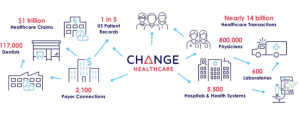When was the last time you wrote a check?
When was the last time you manually deposited a paycheck?
When was the last time you bought stamps?
The world is switching to electronic payments – they are wholly secure, incredibly cheap, and super efficient. Yet some work comp payers are still writing checks and mailing them to providers, while others that have begun the journey are still mailing thousands of checks and EOBs every week.
Given work comp’s top challenges – declining premiums and fewer dollars and fewer resources for administration, and the ease of adopting e-payments – makes zero sense.
Paying providers is one of those “have to get it right” things that suck up resources and staff time. The challenges are many –
- ensuring the provider’s banking info is exactly right
- fraud prevention
- postal challenges
- tying the EOB to the payment
- producing and delivering 1099s
- answering provider questions about payments
In group health and governmental programs, electronic payments are fast becoming mandatory.
Aetna, United Healthcare and other giant payers are mandating electronic payments for their providers…as work comp accounts for less than 1% of total US healthcare payments, payers that don’t/can’t pay electronically will find their costs going up and provider relations suffering.
Join me next Friday March 18 for a webinar on electronic payments and work comp – free registration is here; California CLE and claims credits are available. Hosted by WorkCompCentral, Change Healthcare’s Bill Barbato and I will dive into:
- how to evaluate the impact of e-payments on costs and margins,
- what you should expect from your e-payment vendor;
- how e-payments get implemented;
- why providers want e-payments, and
- how paying providers can generate revenue.
Change Healthcare – formerly Emdeon – is the industry leader in electronic payments…

What does this mean for you?
With declining premiums adding pressure to admin expenses, electronic payments are a must-do.
Change is an HSA consulting client.



Joe, Will you also be addressing electronic payment of benefits to injured workers? If so, consider commenting upon those payors who have used or who may e considering using debit or similar means that charge service charges and thus diminish the injured worker’s statutory benefit.
Hey Steve – thanks for the question. We hadn’t planned to; could address it if a question comes up. Not sure why a virtual card would result in a service charge unless the issuer reduces the worker’s benefit. The cost of the card is paid for by the vendors that accept it – not the one that uses it.
make sense?